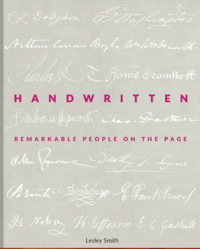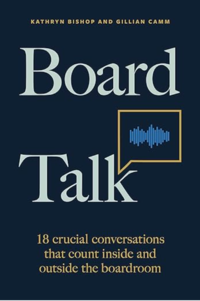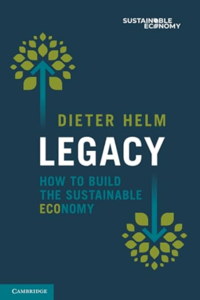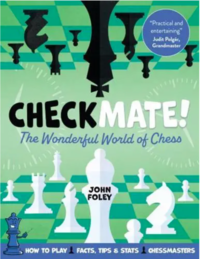OFF THE SHELF: NOVEMBER 2023

OFF THE SHELF: NOVEMBER 2023
Handwriting, Nazi conformity, the economics of climate change, how to act on a Board and chess tips
Published: 06 November 2023
Author: Richard Lofthouse
Share this article

Bystander Society: Conformity and Complicity in Nazi Germany and the Holocaust by Mary Fulbrook (November 1, Oxford University Press)
Just out, this terrific work of historical scholarship is timely because it avoids sensational questions about whether or not ordinary Germans knew about the Holocaust (and therefore they were all incredibly bad people!) and replaces it with historical evidence, namely many individual, entirely relatable narratives that show how a new regime starts to apply coercion on what citizens can do and say, as in Nazi Germany in 1933. Race forwards five years and you know beyond doubt why ‘A vanishingly small minority engaged in active resistance.’ Cautious conformity defined most people in Germany. If you had non-compliant religious beliefs or were deemed not-Aryan, that meant you were at severe risk of arrest, and later death. Over 200,000 people were arrested in the early months of Hitler’s regime merely for their politics. It might have only been one third of one per cent of the German population of 67 million, the author notes, but it sent a stark warning to everyone and explains why passive resistance (at most) became the default for people who disliked Hitler, while the vast majority simply kept their heads down. The author, Professor of German History at University College London, has written about this subject before in A Small Town near Auschwitz: Ordinary Nazis and the Holocaust. Ultimately we depart this latest contribution with new historical understanding freighted with unmistakable warning for the world we are in with relentlessly applied Russian propaganda on one hand and Trumpean categories of post-truth on the other, where it becomes very hard to avoid drifting towards the unthinkable for the sake of not offending others around you, or (say) because a son or a daughter has been swept up in the cause, or because you don’t want another family member to get bullied in school because you’ve stuck your neck out. It seems dull but it’s the truth now, as in 1930s Nazi Germany. Heroism is rare because it is usually very costly.

Handwritten: Remarkable People on the Page by Lesley Smith (Bodleian Publishing, 2023)
The author notes at the outset that the advent of digital reproduction and emails has made archival sources and real hand writing all the more intriguing and revealing. Future archives of purely digital sources will be impoverished by the lack of it. The book then celebrates the extraordinary collections of the Bodleian Library with snippets of hand writing reproduced so we can actually see them and ‘touch’ the authors – kings and queens of the Tudor Court, poets and novelists like George Eliot, Scientists like Dorothy Hodgekin, Reformers like Emmeline Pankhurst, travellers and adventurers like Gertrude Bell. The selected examples show how there are women as well as men, although in the ‘Friends and Rivals’ section the only woman is sculptor Barbara Hepworth alongside Henry Moore. Clara Schumann goes in as a composer while Queen Victoria is included under the title ‘Families.’ A postscript is dedicated to diarist Samuel Pepys.

Board Talk: 18 crucial conversations that count inside and outside the boardroom, by
Kathryn Bishop (Practical Inspiration Publishing, 31 October 2023)
The author (Jesus, 1979) is an Associate Fellow at the Said Business School, and Green Templeton College. She says this contribution to what it means to serve on a board is ‘intended for everyone who serves on a board, and for those who would like to do so.’ As per the title, she has approached the task by imaging eighteen conversations, ranging in subject from risk management to operational insight.
Kathryn, accompanied by co-author Gillian Camm, each have many decades operating at board level in listed and private companies, charities, government boards, professional services firms and educational establishments. They have blended this with their experience of selecting, developing, and teaching non-executives, and underpinned it with a carefully curated selection of the most relevant and usable board research together with their own research insights.

Legacy: How to Build the Sustainable Economy by Sir Dieter Helm (Cambridge University Press, November 2023)
Sir Dieter Helm is Professor of Economic Policy at Oxford, and Fellow in Economics at New College. He has helped to shape government policy on the environment but this book is not encouraging. He says that we have achieved as a global society almost nothing to arrest the march of climate change, despite so much loud chatter and self-congratulation. He takes aim this time at the economics. Showing why the utility maximisation of conventional economic thinking simply doesn’t work faced with climate change, he argues that we have to start by valuing the underlying natural assets of the world, the climate, nature and biodiversity. Only then can a sustainable economy result leading to a legacy for future generations that they would value. The book is very strong on inter-generational equity:
‘We are entitled to inherit from the last generation a habitable world, and we are obliged not to make it worse for those who follow us.’ The trouble is that global dependence on fossil fuel is exactly the same as it was in 1970, at about 80%.

John Foley – Checkmate! The Wonderful World of Chess (Wellbeck Publishing: 28 September 2023)
Chess is more popular now than ever. The 2020 Netflix hit Queens Gambit combined with the pandemic led to an upsurge in the number of people who got interested in chess. Over 100 million people regularly play chess online. There are more books written about chess than any other game or sport. This book is aimed at the young beginner. Based on modern best practice, it starts by advising would-be chess players to play simpler strategy games first to accelerate learning. The book is colourfully designed with a useful coding system distinguishing between safe and unsafe squares, and between good and bad moves. The reader is taken through basic chess tactics and some important endgames. The book explains the moves of a famous game played between two of the top players in the world – a man and a woman. With a full glossary, it would make an ideal first purchase or a gift to an eager child. The author John Foley (PPE, Balliol, 1974) is a former London junior chess champion and Oxford University champion. John specialised in philosophy and later worked as a strategy consultant and barrister. He firmly believes that chess and strategy games can help to develop analytical thinking and should be part of the educational experience at schools.
Off the Shelf typically concerns books where there is an Oxford connection, whether the place, the University or of course the author. Our editorial selection rests on books appealing to the broadest alumni audience.
Alumni can claim 15% discount in any Blackwell's store with a My Oxford Card.
Alumni can claim 20% discount at Oxford University Press.
Join the Oxford Alumni Book Club at: www.alumni.ox.ac.uk/book-club
Lead image: Getty Images















